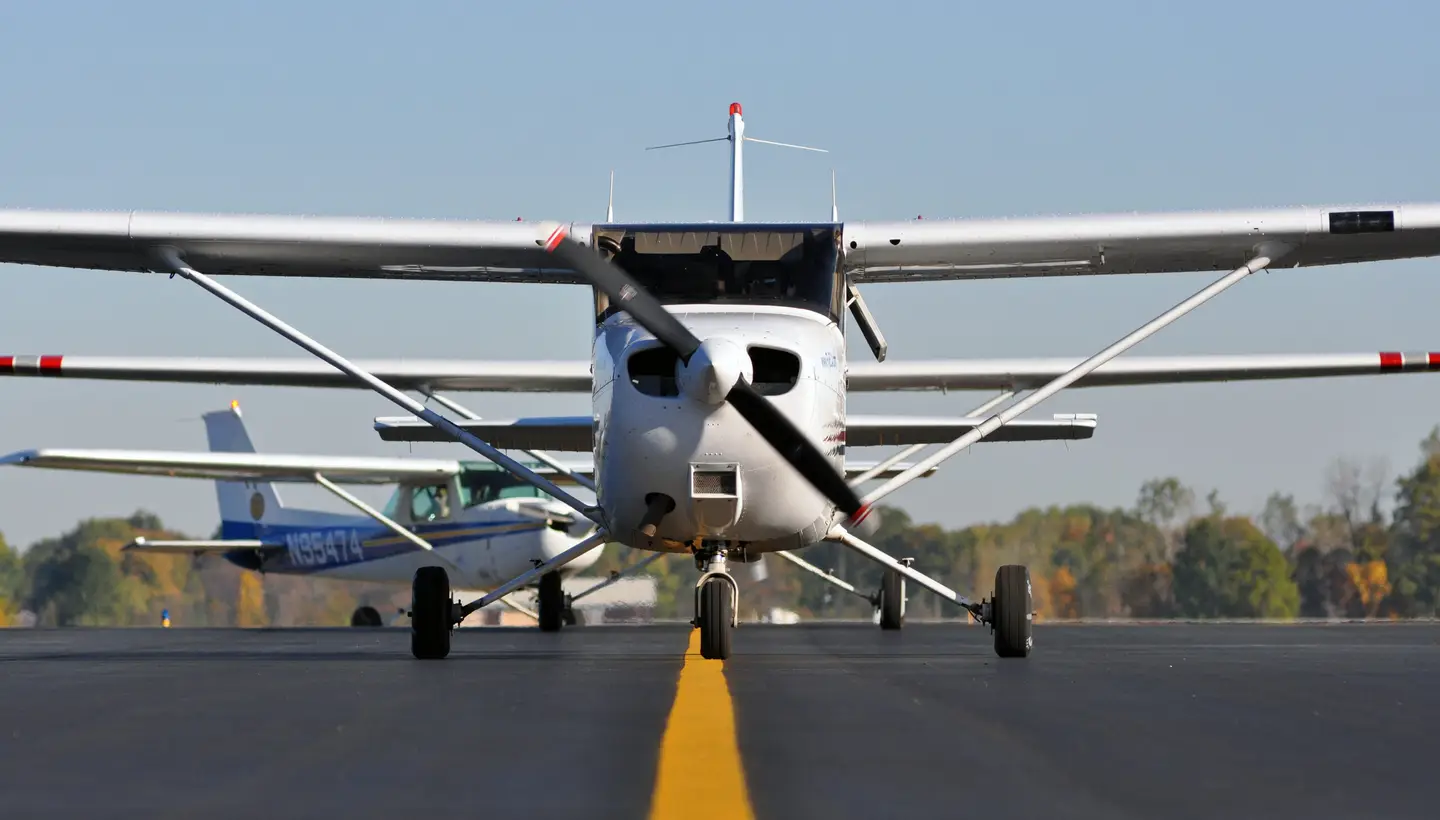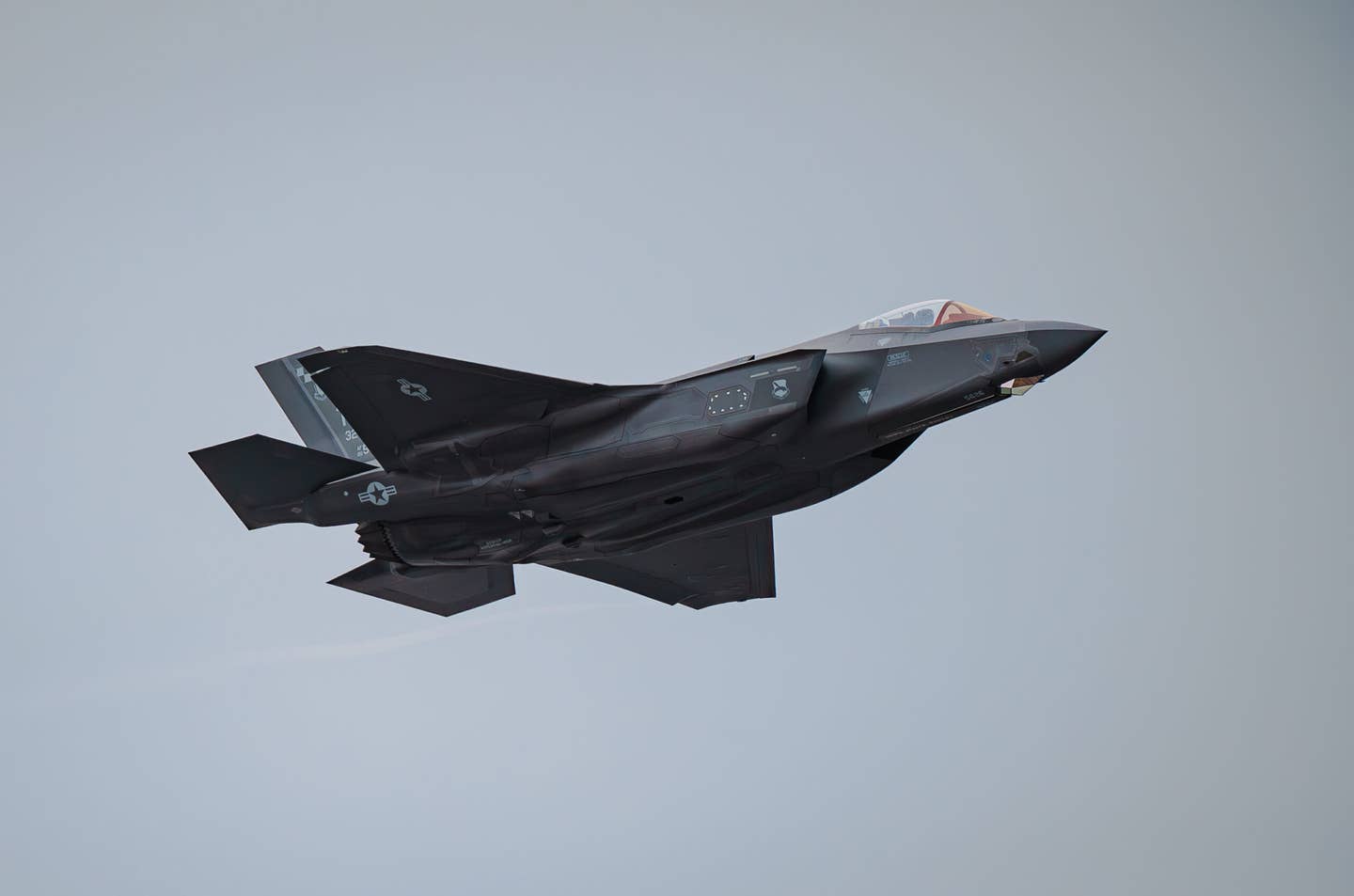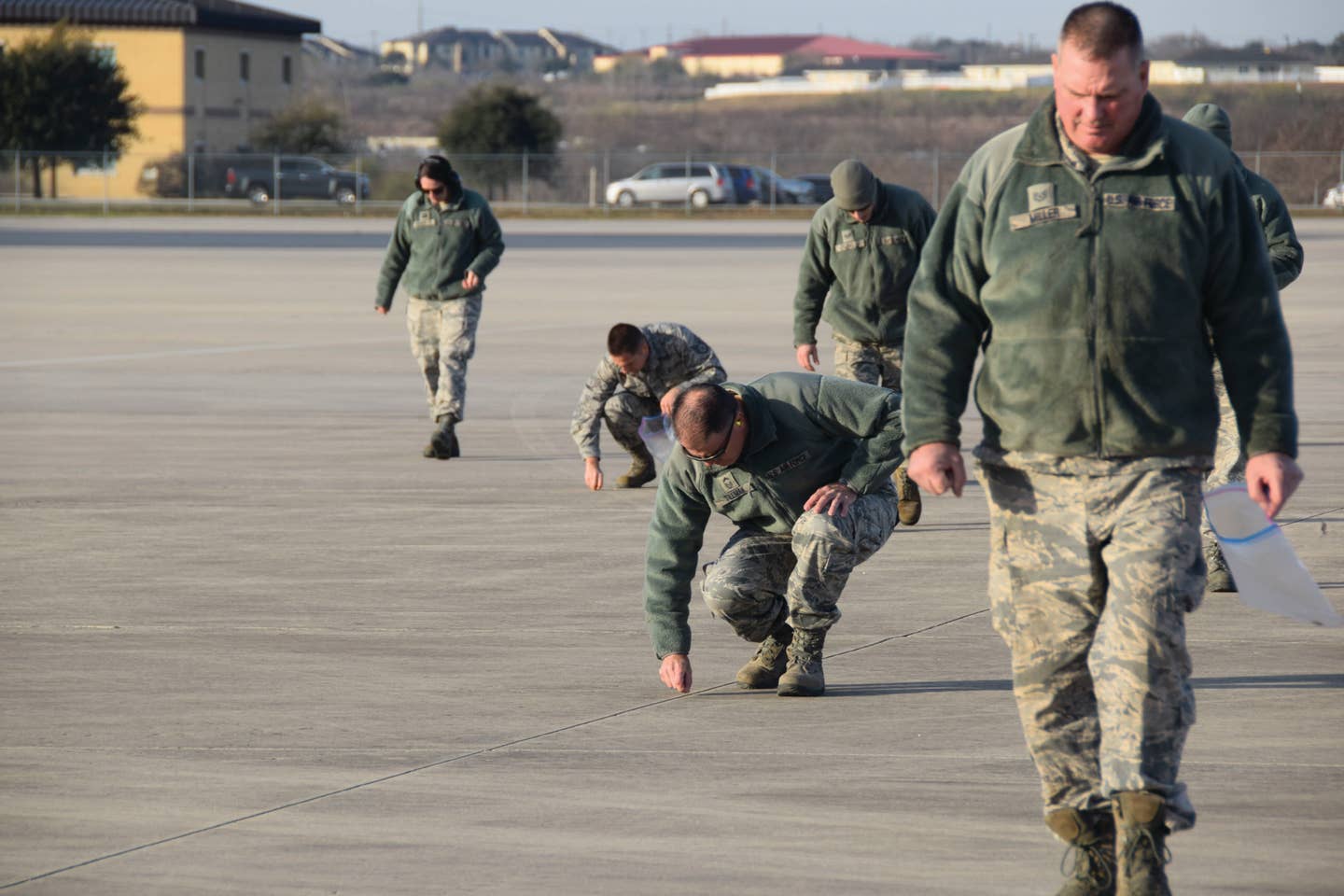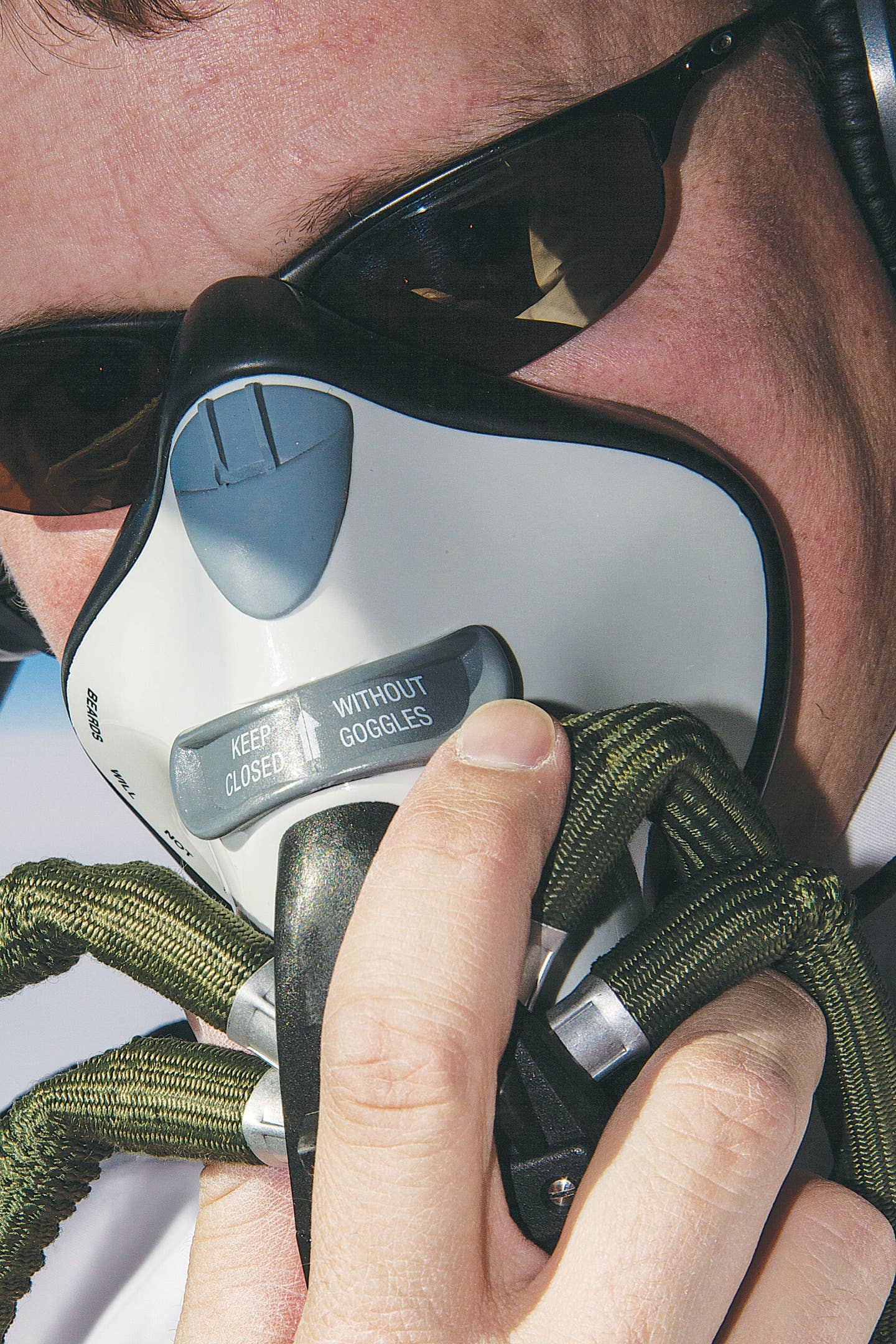
I sat in our Miami pilots' lounge, looking at the faces scattered around the room. It was a typical scene. Some pilots were reclined in lounge chairs while others were seated at a desk, plugged in to their laptops. Some pilots were engrossed in a newspaper.
The TV at the front of the lounge flickered with images from Iraq. As the captions on the bottom of the screen flowed by, a CNN reporter spoke about the latest military operations in Baghdad. The pilots who appeared to be watching the TV returned only blank stares. There was little in the way of conversation until a 50-something captain marched through the door. He exchanged greetings with another 50-something captain, seated toward the back of the room. From my close proximity, I couldn't help but overhear the conversation.
Apparently, both captains were involved in similar stages of a divorce. One of the captains made mention of an alimony payment that caused my heart to skip a beat. They were senior captains. I could only guess that they had been with the airline for at least 25 years. I had a good idea what their W-2s looked like. Even so, the alimony payment still was not pretty. And then one of the captains spoke of the pay cut and the tentative agreement. He was considering the sale of his home. The conversation became more depressing. They discussed retirement pensions and how they could disappear. I began to think about the younger pilots and their families. Some of these younger pilots would not even face the privilege of taking a pay cut. They would simply be out on the street, furloughed with an uncertain future. I could only shake my head.
Why do I bring up this conversation? Because it is typical of the conversations that are occurring in pilot lounges at almost every major airline. The words "bankruptcy," "Chapter 11" and "liquidation" are becoming a standard part of pilot vocabulary. Unfortunately, none of these words is on our checklists.
As I face the potential demise of my airline and possibly my career, I would like to share some insight. Please understand that this insight is from my vantage point. I can't speak for all of my fellow pilots.
A little background may be helpful. As you are probably aware, the major airlines were in an overcapacity situation long before September 11th. There were too many airline seats going to the same places. Remember the clear, blue days when La Guardia looked more like the Grand Central Parkway on a Friday than an airport? Too many seats translate into not enough revenue to go around. Too many airplanes waiting for takeoff translates into frustrated passengers, especially business people. With the economy beginning to slump, the business people began to limit their travel. When they did travel, they started to do more airline shopping. Our airline started losing the business people to smaller, cut-rate carriers. We also lost our business people to places like www.priceline.com, or we lost them to teleconferencing. Our business folks are the ones who pay the premium dollars. Their revenue made up for the families that had purchased the once-in-a-lifetime, heavily discounted ticket to Disney World. Regardless, our management felt that we had a premium product. Business people would still be willing to pay a premium price because we were a premium airline. As you know, that philosophy is still not working.
Enter September 11th. The icing on the cake. Tremendous losses occurred at all the major airlines as a direct result of the terrorist attacks. My airline had two hull losses, notwithstanding the more important loss of my fellow crewmembers, their passengers and the lives on the ground. In the days, weeks and months that followed, traveling on an airline was nothing short of a migraine headache. The premium business passengers had better things to do with their time than show up at the airport two hours before departure. They did come back, however, but not in droves. And they didn't come back paying premium prices.
In the meantime, my airline had committed to some large capital expenditures for airport terminals. It had also purchased a small airline based in Reno. For an encore, my airline completed the purchase of a financially devastated major airline, taking on its debt and its personnel. The U.S. government began commanding bigger chunks from ticket prices. The airlines began paying for increased security with the development of a new government agency-the TSA. The airlines began paying for temporary fixes to cockpit doors and then eventually the installation of reinforced cockpit doors. They began to give up premium revenue to accommodate federal air marshals. The airlines began paying exorbitant premiums for terrorist insurance. Fuel prices were increasing. The war in Iraq began to reduce advance bookings. There is more, but I only have so much room for this column. Can you see the makings of a perfect storm?
This is the environment the airlines find themselves in today. It's just not pretty. The effects have been devastating to many airline employees and their families. But let's focus on pilots for now. There are thousands of pilots on furlough. As of this writing, my airline has 1,100 pilots on furlough. We are anticipating at least another 2,500. If you read my April article, you have an understanding of the seniority system. If any of these furloughed pilots seek employment with another airline they will have to start at the bottom of the seniority list. And not all of these furloughed pilots are in their 20s and 30s. But there are no major airline jobs to be had. As a matter of fact, the total professional pilot pool is becoming oversaturated with some very qualified people. That's the good news.
For those of us who remain, we face concerns that threaten the lifestyle we have worked hard to earn. As my airline bleeds its cash supply, it has looked for first aid. The first aid has come in the form of tremendous concessions from its employees. Pilots are the highest paid employees and thus are asked to make the largest concessions.
My intention is not to spark a debate on airline pilot salaries and work rules, but to give you my perspective.
First of all, pilots are skilled labor. We are considered professionals like doctors and lawyers. We have all invested a given amount of time in pursuit of our airline careers. We have an expectation of our career's return on our investment. My membership in the Allied Pilots Association is my only insurance in maintaining that expectation.
Unfortunately, managements of large employee groups have created the necessity to maintain a collective bargaining association, commonly called a union. Unions are governed by their contracts and labor law. Some may feel labor unions are counterproductive. I have heard the arguments. All I can do is point out the positive aspects of my union. As an airline passenger, or even another pilot, you have benefited from some of the dedicated safety concerns of my fellow pilots. As an example, read the May Jumpseat. That's only the tip of the iceberg.
Okay, here is my situation. And it's a lot better than most. I'm not asking for sympathy. I just want you to get a glimpse of today's realities from the perspective of this airline pilot. I have been with the airline for almost 19 years. I am a 767 captain. Our longevity pay rates stop at the 12-year mark. Thus, my pay raises only come with a new contract. A contract term is typically four years. We have been negotiating a new contract for almost two years since the end of the last term. I average a paid flight time of 75 hours per month. This does not include actual time away from home when on the job. As of this writing, I average an hourly salary of approximately $200. That computes to $180,000 per year. Because of schedules that have much lower monthly paid hours due to the present state of the airline, my yearly salary has been reduced even further. My pay rates are at the bottom of the scale compared to other major airlines by as much as 30 percent.
In addition to other negative work rule changes, my airline has proposed to cut my salary by 23 percent for the first year and then 17 percent for the remaining period of a six-year contract. The salary cut equates to $41,400. Big deal? Well, we all have an expectation of living at a certain lifestyle level. We don't expect the rug to be pulled out from underneath us quite so fast. There aren't many of us out there in any profession who choose to live the way we did in our college dormitory days. So it is a big deal. But I'm lucky. My fellow pilots who hold junior positions will be falling back to copilot seats. Not only will these folks take a 23 percent pay cut initially, they will also incur an additional loss for changing positions. It could be as much as 45 percent.
But wait, there's more. With a Chapter 11 filing, a certain section of bankruptcy law allows for the complete abrogation of union contracts. That's why pilots of one bankrupt airline lost a major portion of their pensions. Big deal, again? Well, it all goes back to the expectation thing. How does a 59-year-old airline pilot tell his family he's got to go back to work when he retires? And how about the pilot who is already retired, collecting a yearly annuity from a bankrupt airline?
First of all, none of us flew our airline into this mess. Now that our management got us into this mess, why are they attempting to use bankruptcy law as a negotiation tool? Why is a coalition of airline managers attempting to wipe out years of successful labor negotiation laws? Why did the last two White House administrations see fit to prevent airline labor from utilizing its only bargaining chip, a strike, because it could be economically detrimental to the American people but proceed to turn a blind eye when it sees the industry crumbling? How can an uninformed judge decide the financial life of so many airline employees by a mere pounding of his gavel? Why does the management of some airlines continue to award itself with bonuses, despite the poor condition they have brought their companies to?
On the subject of bailing out the industry, many taxpayers feel that this has already occurred. They reference the loans given through the Air Transportation Stabilization Board (ATSB). The ATSB was set up for the purpose of mitigating the losses directly attributable to September 11th. Of the airlines that have applied, only a small handful has actually received the loans. Guess what? The loans are given by other creditors, not the taxpayers. We, as taxpayers, only pay if the particular airline defaults on the loan. In order for an airline to qualify it has to meet certain criteria. That criteria often requires the airline to ask for concessions from labor. I find it frustrating that the U.S. government is endorsing labor concessions.
Regardless of your opinion of airline pilot salaries, we all face a problem. If government and big corporations have the power to dictate your worth, we become like the country we are spending billions of dollars and American lives trying to liberate. If you feel Shaquille O'Neal is overpaid, you have the choice of not going to a basketball game. If you feel my friend and fellow columnist Dick Karl is overpaid for saving lives, you have the choice of going to another surgeon. If you feel an airline pilot is overpaid, then you have the choice of not buying a ticket on his airline.
Our airline pilot salaries didn't bring my industry to this precipice. Sadly, most of us are willing to make the tremendous sacrifices in our lifestyles simply because we love this profession. We are married to our seniority number. We have no other place to go. And we have no checklist for this emergency . . .

Sign-up for newsletters & special offers!
Get the latest FLYING stories & special offers delivered directly to your inbox






